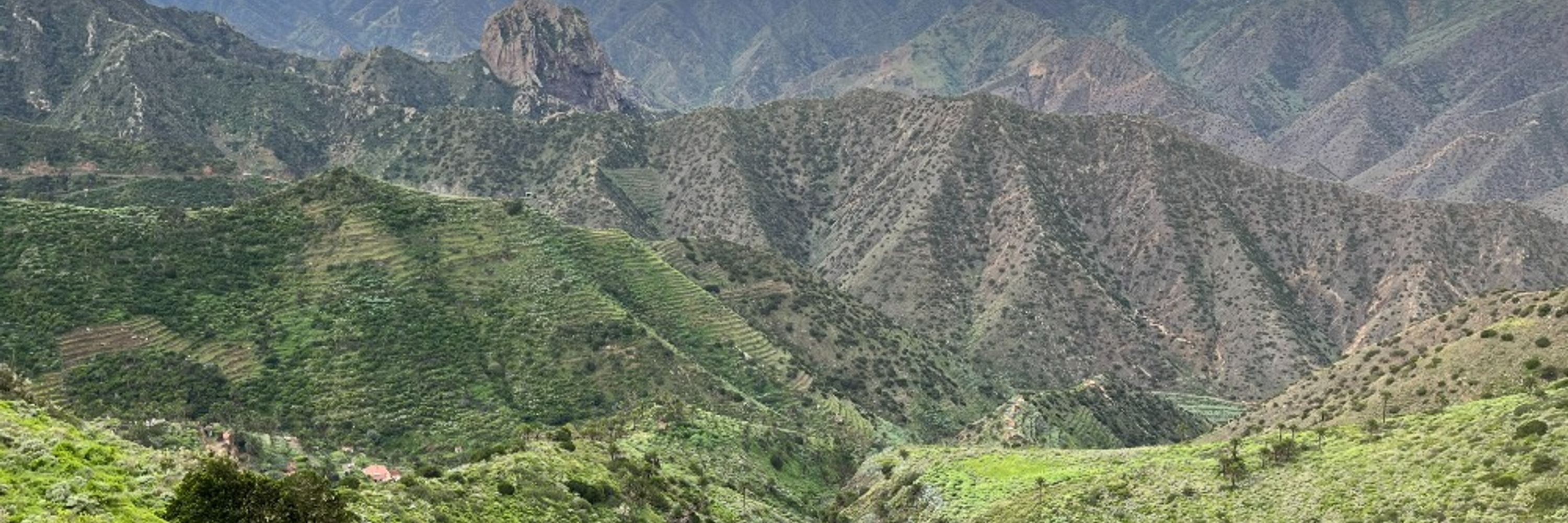
@Ecology_Letters. M 2:37, HM 72:49, FTP 4.45W/kg
We share our pre-registration and all materials to support transparency and reproducibility:
🧾 doi.org/10.17605/OSF...
💾 github.com/shreyadimri/...

We share our pre-registration and all materials to support transparency and reproducibility:
🧾 doi.org/10.17605/OSF...
💾 github.com/shreyadimri/...
📄 doi.org/10.32942/X2X...
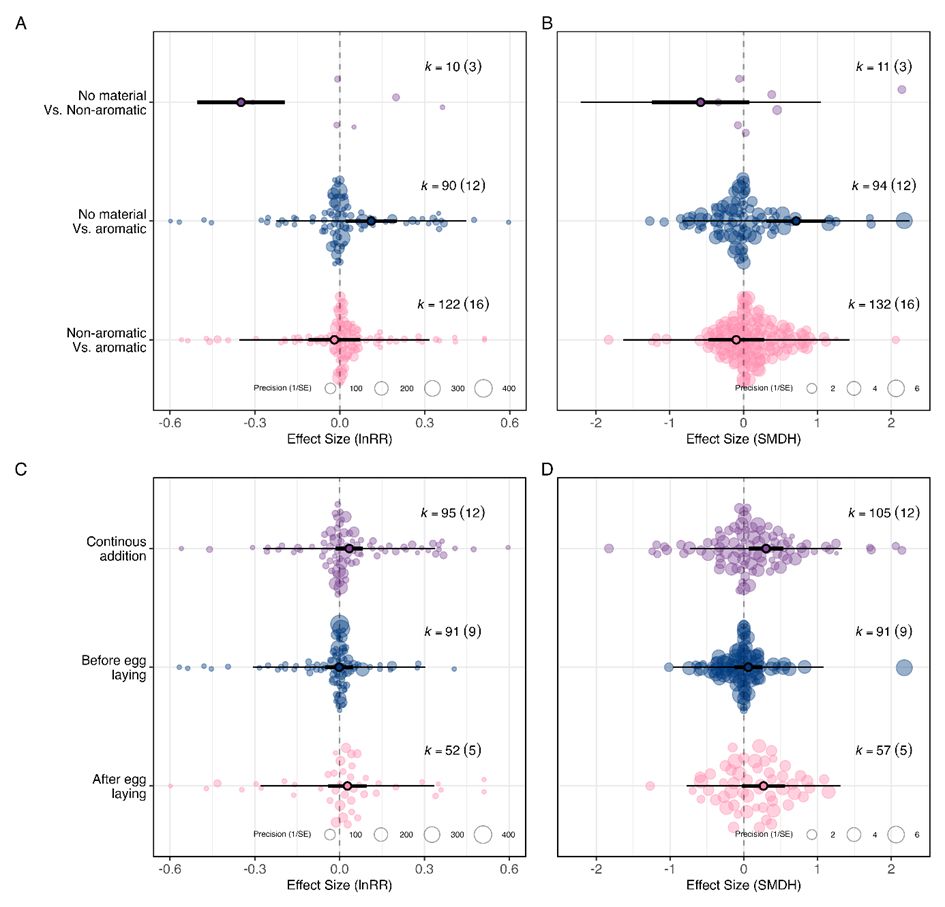
📄 doi.org/10.32942/X2X...
GNM can enhance fitness, but its functional role remains unresolved
📄 doi.org/10.32942/X2X...
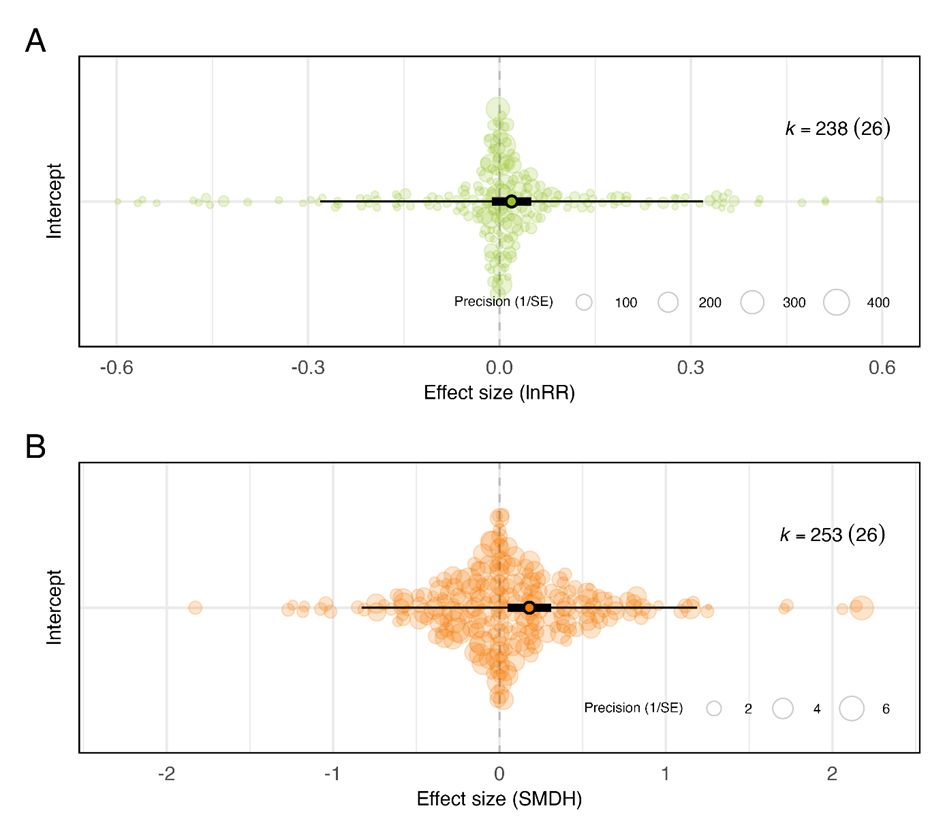
GNM can enhance fitness, but its functional role remains unresolved
📄 doi.org/10.32942/X2X...
We synthesised 274 effect sizes from 28 studies on 7 species across 17 regions
📄 doi.org/10.32942/X2X...

We synthesised 274 effect sizes from 28 studies on 7 species across 17 regions
📄 doi.org/10.32942/X2X...
Why do they do this? Despite decades of study, we still don’t know the overall adaptive significance or generality of this behavior
📄 doi.org/10.32942/X2X...

Why do they do this? Despite decades of study, we still don’t know the overall adaptive significance or generality of this behavior
📄 doi.org/10.32942/X2X...
I'm joining the meta-research group led by @tweissgerber.bsky.social & the @ec.europa.eu funded @excelscior-era.bsky.social
Thrilled to join this historic university & continue my work on #MetaResearch #EvidenceSynthesis & #OpenScience

I'm joining the meta-research group led by @tweissgerber.bsky.social & the @ec.europa.eu funded @excelscior-era.bsky.social
Thrilled to join this historic university & continue my work on #MetaResearch #EvidenceSynthesis & #OpenScience
Many thanks to @ecobrlik.bsky.social for the kind invitation & for leading what'll surely be a fantastic systematic map (protocol 👉 doi.org/10.57808/pro...)

Many thanks to @ecobrlik.bsky.social for the kind invitation & for leading what'll surely be a fantastic systematic map (protocol 👉 doi.org/10.57808/pro...)
🔍 Our study checked data/code-sharing policies in 275 eco/evo journals and compliance in Proc B (n=2,340) & Ecology Letters (n=571). Policies exist, but clarity and strictness vary, affecting reproducibility.
🔗 doi.org/10.1098/rspb...

🔍 Our study checked data/code-sharing policies in 275 eco/evo journals and compliance in Proc B (n=2,340) & Ecology Letters (n=571). Policies exist, but clarity and strictness vary, affecting reproducibility.
🔗 doi.org/10.1098/rspb...
TADA (Transferable, Accessible, Documented, Annotated) helps researchers across disciplines share code, with the ultimate goal of increasing code availability & its quality.
Brilliantly led by @eivimeycook.bsky.social
🔗 doi.org/10.32942/X2D...

TADA (Transferable, Accessible, Documented, Annotated) helps researchers across disciplines share code, with the ultimate goal of increasing code availability & its quality.
Brilliantly led by @eivimeycook.bsky.social
🔗 doi.org/10.32942/X2D...
"A systematic review and meta-analysis on urban arthropod diversity" (doi.org/10.1111/icad...)
We performed a meta-analysis of means & variances, and explored how methods matter when studying urbanisation. Check it out!

"A systematic review and meta-analysis on urban arthropod diversity" (doi.org/10.1111/icad...)
We performed a meta-analysis of means & variances, and explored how methods matter when studying urbanisation. Check it out!
Absolutely amazing editorial team!

Absolutely amazing editorial team!
📰 doi.org/10.24072/pcj...
💻 github.com/ASanchez-Toj...
We've shared our results already (bsky.app/profile/asan...), so we won't bother you again.
Instead...👇

📰 doi.org/10.24072/pcj...
💻 github.com/ASanchez-Toj...
We've shared our results already (bsky.app/profile/asan...), so we won't bother you again.
Instead...👇
🔗 doi.org/10.1371/jour...

🔗 doi.org/10.1371/jour...
- Reviewer #1, confesses to be the same as for CB, angrily insists that our study is shit
- Reviewer #2, not the same as for CB, first praises our meta-analysis, then, on the 2nd round of review, goes further (see image).
➡️ Accepted 📄 🥳

- Reviewer #1, confesses to be the same as for CB, angrily insists that our study is shit
- Reviewer #2, not the same as for CB, first praises our meta-analysis, then, on the 2nd round of review, goes further (see image).
➡️ Accepted 📄 🥳
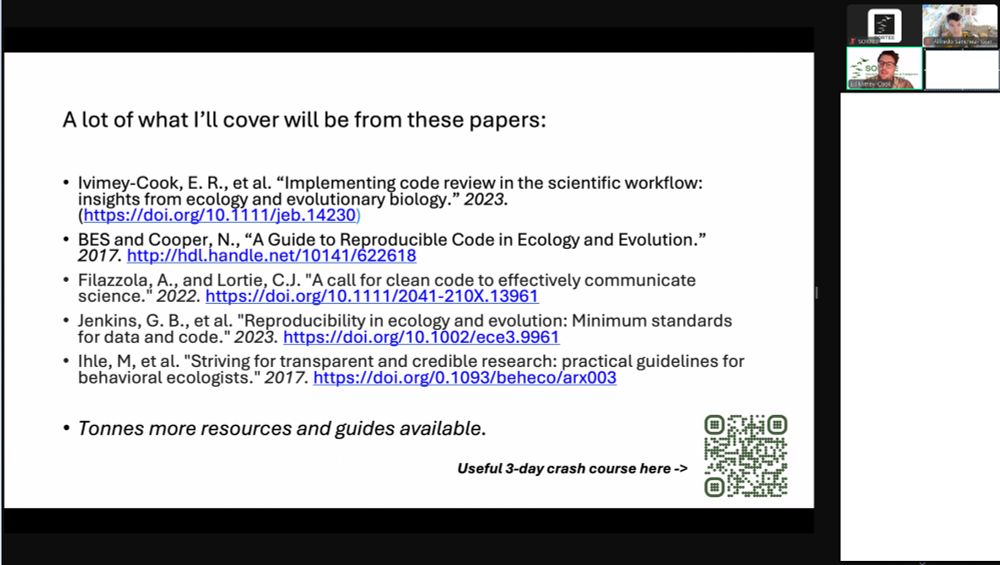
Recommendation: doi.org/10.24072/pci...
Next stop ▶️ Submit to @peercomjournal.bsky.social, let's support amazing initiatives.
A. Bezine, @marijapurgar.bsky.social, @anticac.bsky.social

Recommendation: doi.org/10.24072/pci...
Next stop ▶️ Submit to @peercomjournal.bsky.social, let's support amazing initiatives.
A. Bezine, @marijapurgar.bsky.social, @anticac.bsky.social
We have now updated our #preprint after a wonderful round of reviews at @peercommunityin.bsky.social
📰 doi.org/10.32942/X21...
💻 github.com/ASanchez-Toj...
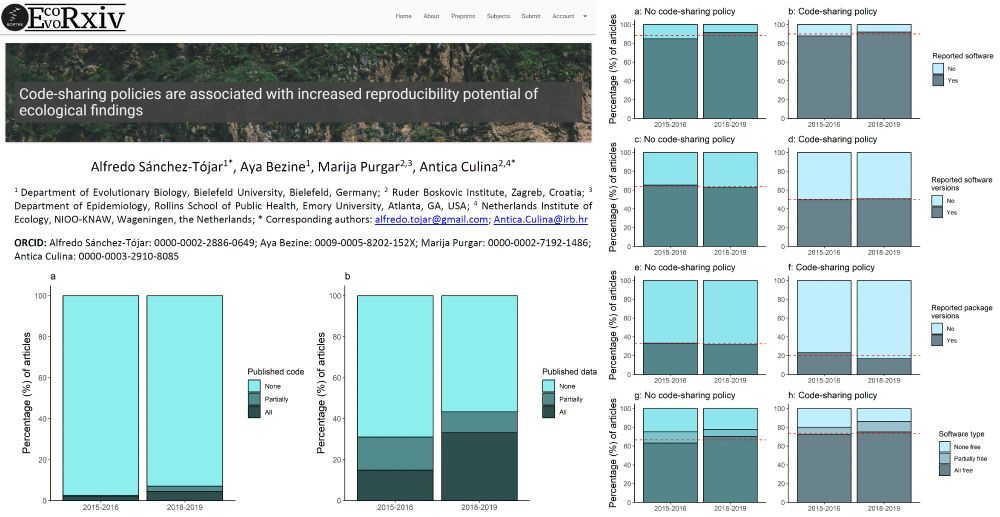
We have now updated our #preprint after a wonderful round of reviews at @peercommunityin.bsky.social
📰 doi.org/10.32942/X21...
💻 github.com/ASanchez-Toj...
Also to the Ecology Letter editors & reviewers for the most thoughtful criticism I’ve ever received during peer review. It’s not often that peer review makes a difference.
Thank you all 🙏
📰 doi.org/10.1111/ele....

Also to the Ecology Letter editors & reviewers for the most thoughtful criticism I’ve ever received during peer review. It’s not often that peer review makes a difference.
Thank you all 🙏
📰 doi.org/10.1111/ele....
The high heterogeneity found suggests context dependency (meta-analyses are rarely conclusive!)
📢 We need more research! 👇
📰 doi.org/10.1111/ele....

The high heterogeneity found suggests context dependency (meta-analyses are rarely conclusive!)
📢 We need more research! 👇
📰 doi.org/10.1111/ele....
➡️ Complete data extraction was only possible for 22/57 included studies
➡️ 20 additional studies were excluded due to preventable reporting issues
➡️ 8 authors had lost the data FOREVER 😭
📢 PLEASE, publish your data! #opendata 📢

➡️ Complete data extraction was only possible for 22/57 included studies
➡️ 20 additional studies were excluded due to preventable reporting issues
➡️ 8 authors had lost the data FOREVER 😭
📢 PLEASE, publish your data! #opendata 📢
➡️ We did NOT find clear evidence of #publicationbias in our dataset.
👉 Presumably thanks to our efforts to obtain nonreported results directly from authors.


➡️ We did NOT find clear evidence of #publicationbias in our dataset.
👉 Presumably thanks to our efforts to obtain nonreported results directly from authors.
That is, on average, studies didn't differ in what they found. Said differently, our results are generalizable (replicable) among studies.
📰 doi.org/10.1111/ele....

That is, on average, studies didn't differ in what they found. Said differently, our results are generalizable (replicable) among studies.
📰 doi.org/10.1111/ele....
We tested the robustness of our findings to several analytical decisions, and our results were consistent across.
📰 doi.org/10.1111/ele....

We tested the robustness of our findings to several analytical decisions, and our results were consistent across.
📰 doi.org/10.1111/ele....
🔹 Offspring age
🔹 Experiments vs Observational
🔹 Experiments on Eggs vs Mothers
🔹 Fitness proxy
🔹 Etc.
However, our meta-regressions did not explain much heterogeneity.
📰 doi.org/10.1111/ele....



🔹 Offspring age
🔹 Experiments vs Observational
🔹 Experiments on Eggs vs Mothers
🔹 Fitness proxy
🔹 Etc.
However, our meta-regressions did not explain much heterogeneity.
📰 doi.org/10.1111/ele....
In short: we found little evidence for an effect of egg hormones on fitness-related traits 🐦, but high heterogeneity.
📰 doi.org/10.1111/ele....

In short: we found little evidence for an effect of egg hormones on fitness-related traits 🐦, but high heterogeneity.
📰 doi.org/10.1111/ele....

